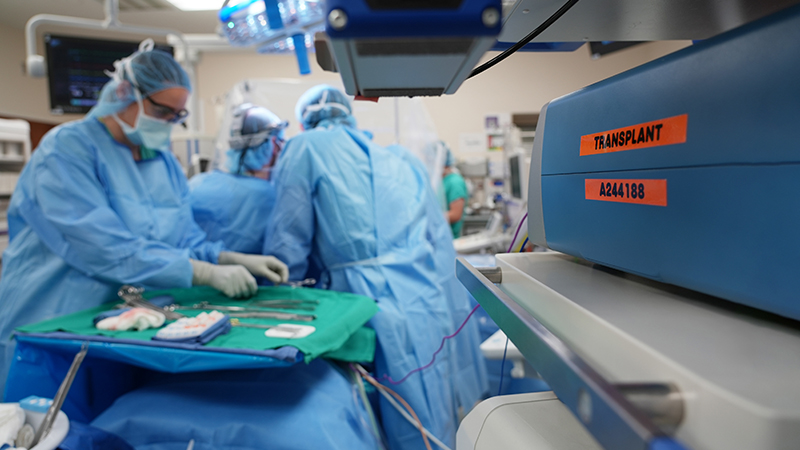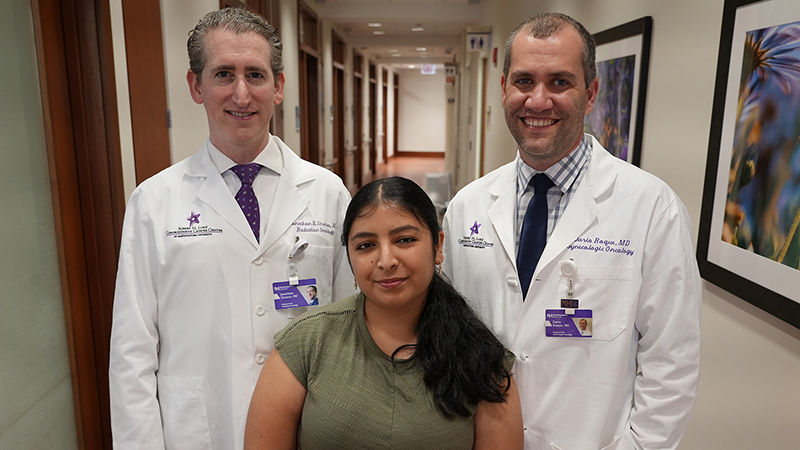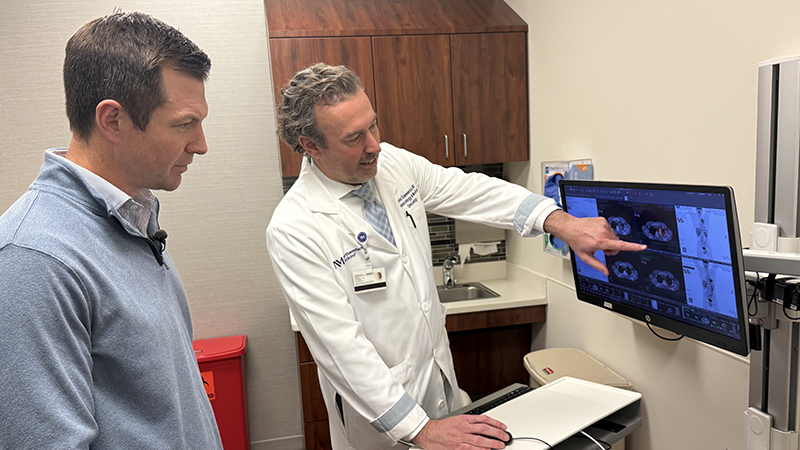Northwestern Medicine Thoracic Team Gives Future Paleontologist a Third Chance at Life
A Young Patient Finds Hope and Explores His Passion for Dinosaurs
Published November 2023
18-year-old Josh Burton has always loved dinosaurs. Born in Guatemala and adopted as a baby by his mother, Kelly Burton, Josh grew up planning for a career paleontology. But in 2020, during the height of the COVID-19 pandemic, Josh started having problems breathing and was diagnosed with pulmonary veno occlusive disease, a rare condition that causes the small veins in the lungs to narrow and impair blood flow.
In the spring of 2021, at the age of 14, Josh received a double-lung transplant at a Wisconsin hospital.
“When I was fourteen and had my first lung transplant, I gave up on my dream of being a paleontologist because I knew I couldn’t be around dust and dirt,” says Josh.
We are a destination of hope.— Ankit Bharat, MD
Clinicians recommend that people who have received lung transplants avoid dirt because they are at a higher risk of fungal infections, which can lead to pneumonia and other serious health issues. After transplant, patients should avoid working with dirt for their entire lives.
The disappointments didn’t end there. One year later, Josh contracted RSV, a common respiratory virus, and his new lungs started to fail. Retransplantation for new lungs is difficult — especially given Josh’s young age and the fact he was only one year out from the first transplant.
A Destination of Hope
According to Josh’s mom, more than 20 hospitals turned him away for a retransplant — until he came to Northwestern Medicine.
“So many medical centers turned me down for a second transplant, but Northwestern Medicine gave me a chance to live, to see my eighteenth birthday,” says Josh.
Once at Northwestern Medicine, Josh was hooked up to an ECMO machine, which does the work of the heart and lungs. He and his care team endured 13 “dry runs” — where surgeons received a call for available lungs that were then determined to be unsuitable.
Finally, they found a perfect match and Josh underwent a successful surgery.
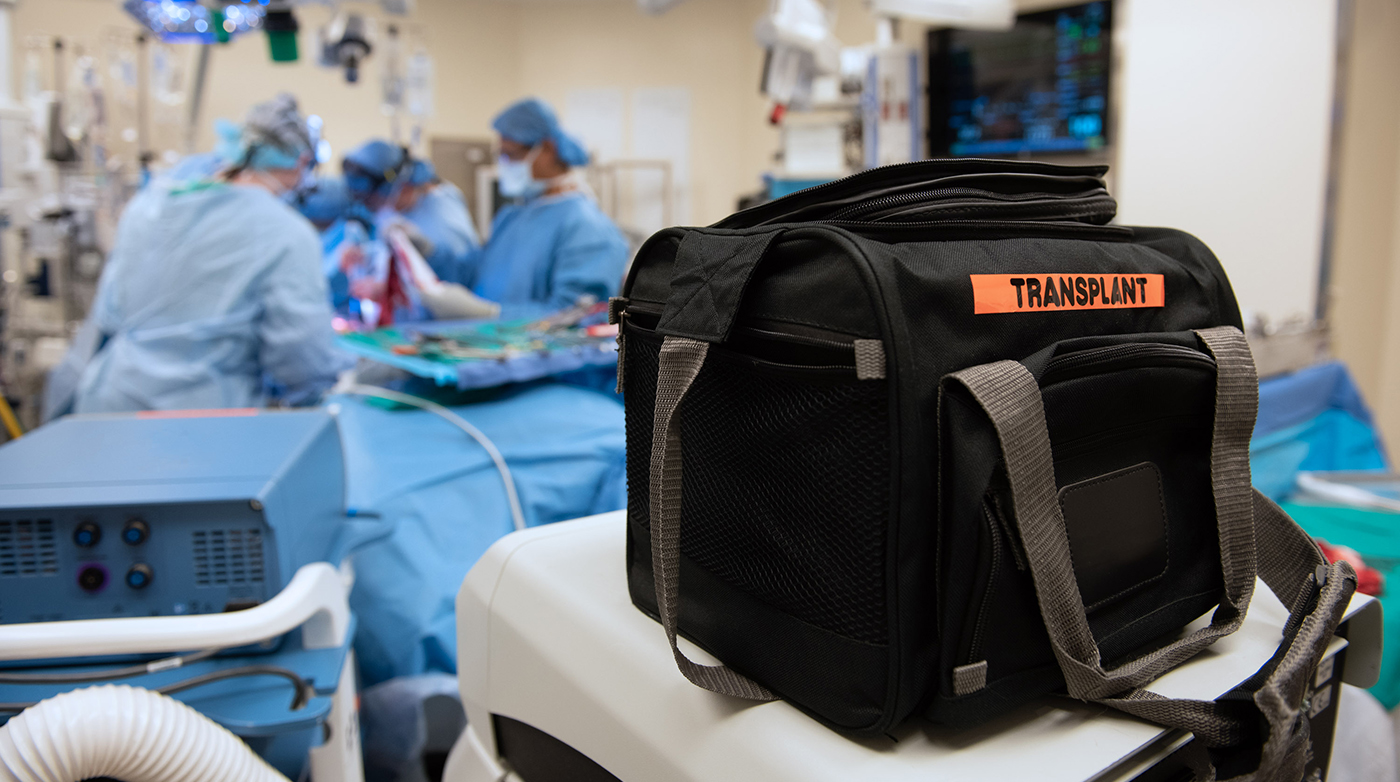
“In my entire career, I’ve never witnessed 13 dry runs for new lungs. It was a roller coaster of emotions for Josh’s family,” says Ankit Bharat, MD, chief of Thoracic Surgery and director of the Northwestern Medicine Canning Thoracic Institute. “Josh was battling a bad viral infection, he was on ECMO for a long time, he was critically ill and most importantly — his anatomy was completely altered due to his previous lung transplant.” Josh’s case was tricky for a number of reasons, but these are the types of cases our team takes on because we are a destination of hope.”
Ditching the Dirt
When the Field Museum in Chicago heard about Josh’s case and his love for dinosaurs, they offered to make him an honorary paleontologist for a day. Two museum employees gave Josh and his mom an exclusive, behind-the-scenes tour, letting him see and do things that are off limits to the public to show him that he can still be a paleontologist without working in the dirt.
According to one of Josh’s tour guides, a vast majority of methods and techniques used by paleontologists today, especially the most exciting and cutting-edge, are all techniques that would be still be accessible to him. There are fossils waiting to be studied and even new species to discover without going in the field.
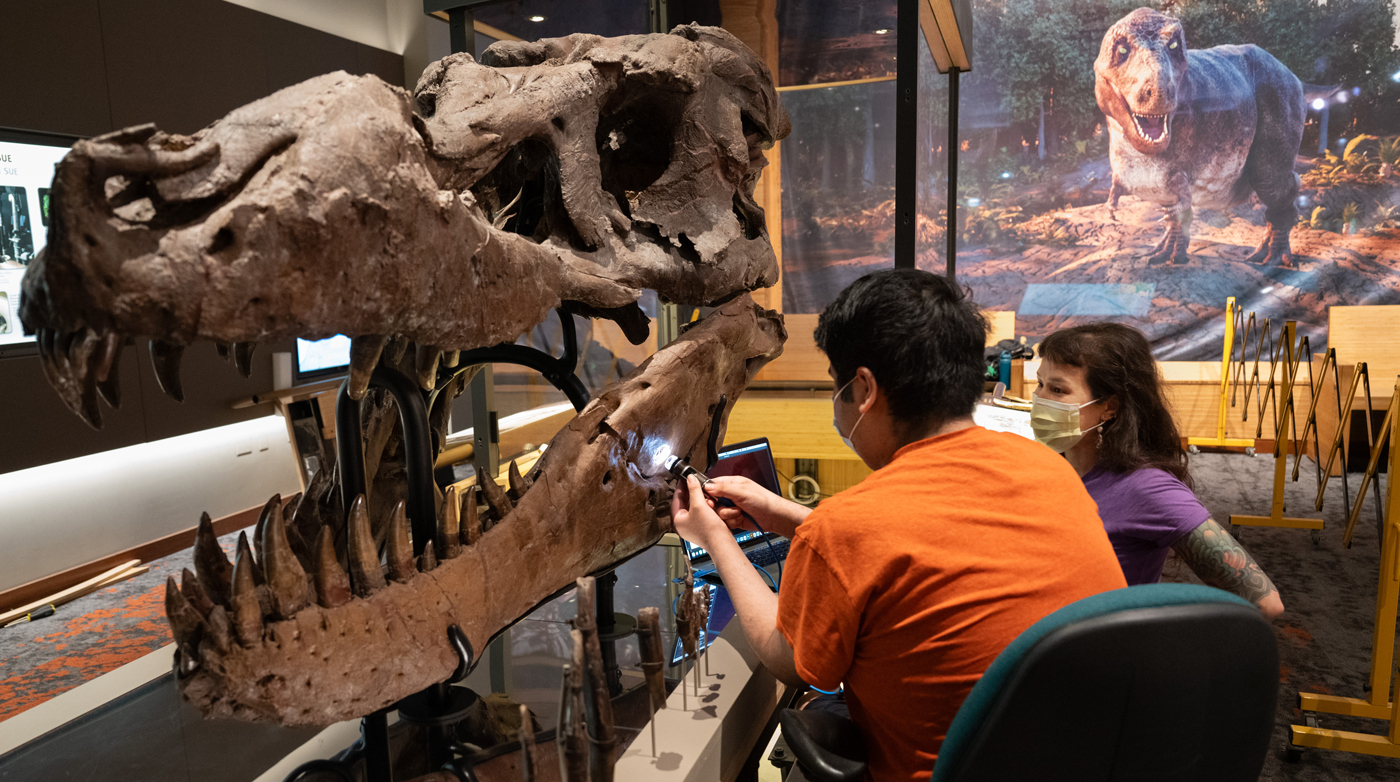
With new lungs and new hope for his future in paleontology, Josh is tackling his final year of high school inspired by both his Northwestern Medicine care team and the team at the Field Museum.
“All kids tend to go through phases, but Josh never outgrew his love for dinosaurs,” says Kelly, Josh’s mom. “I’m hopeful that he can still fulfill his dream of working with dinosaurs.”




